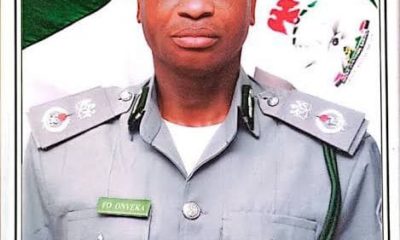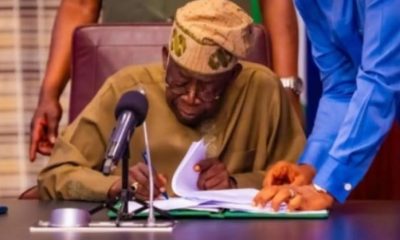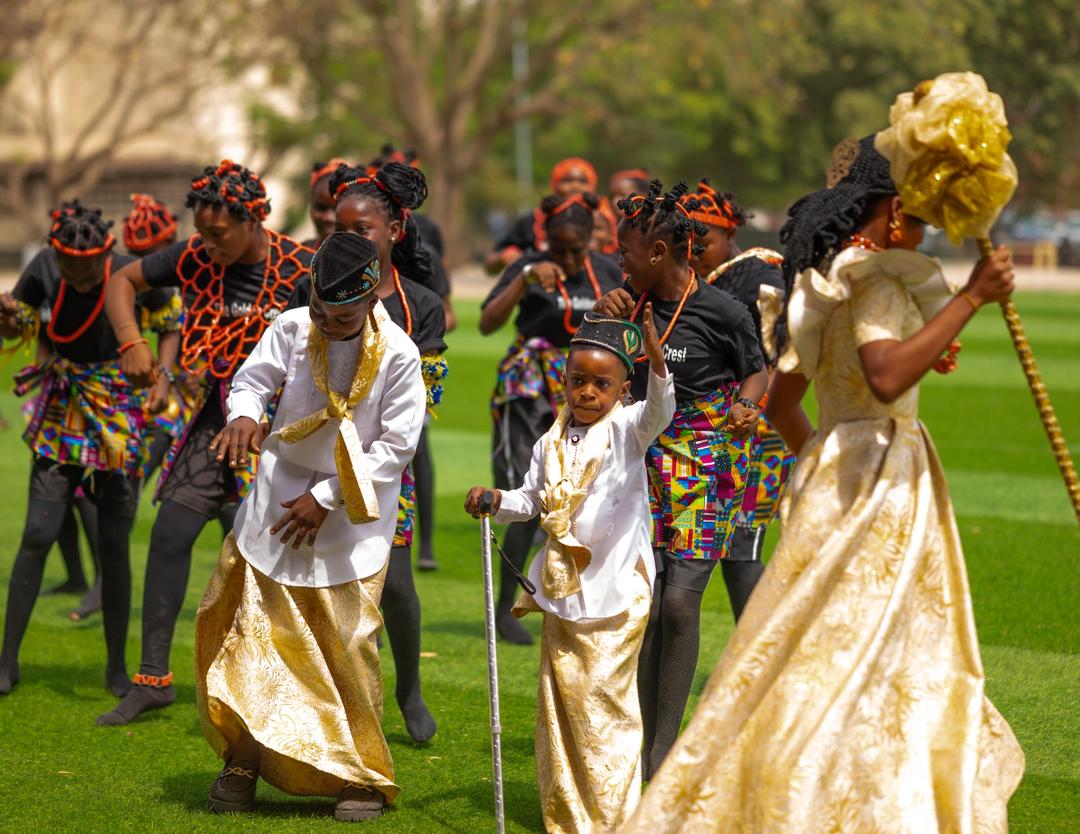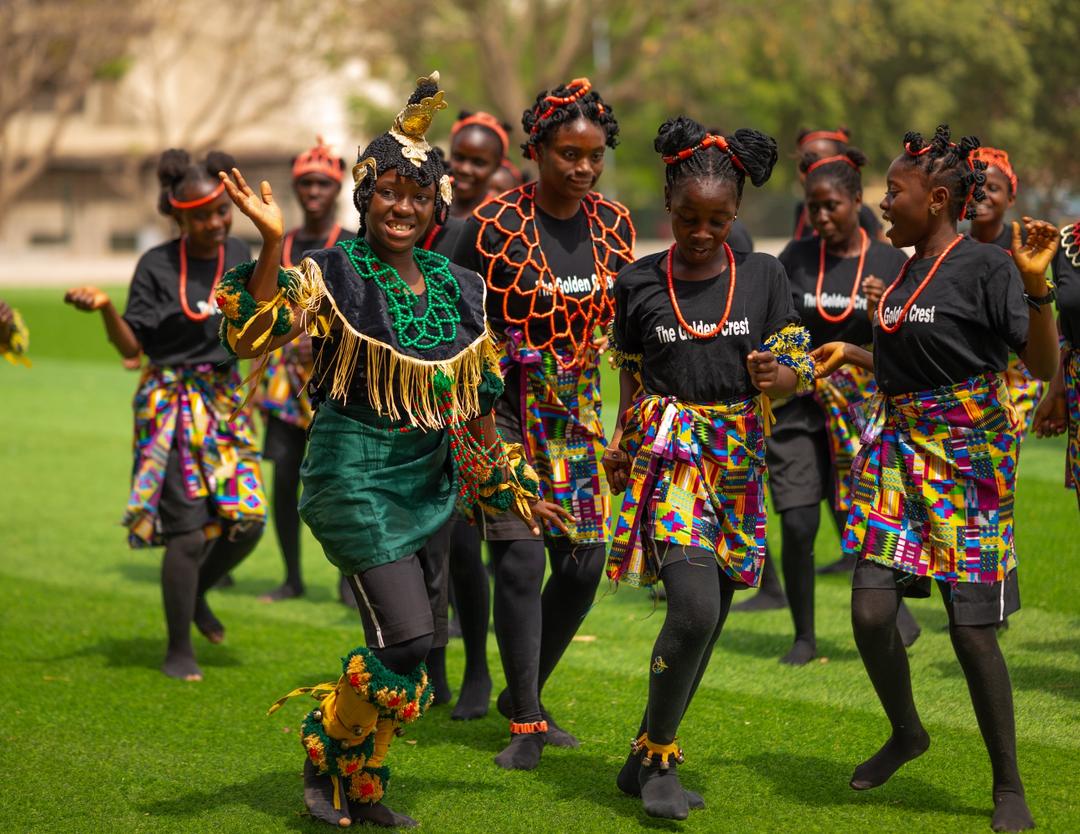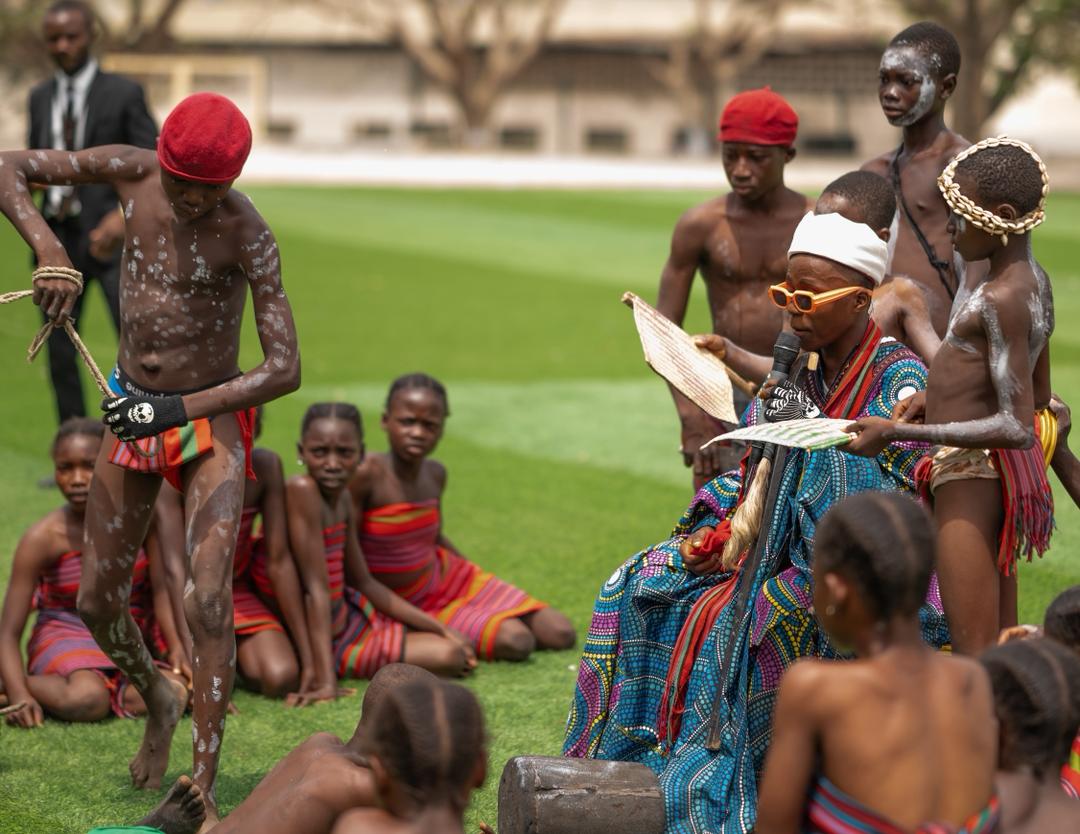society
Dismissed female inspector Cries Out Over Cover up, Threat To Life By Police Authorities
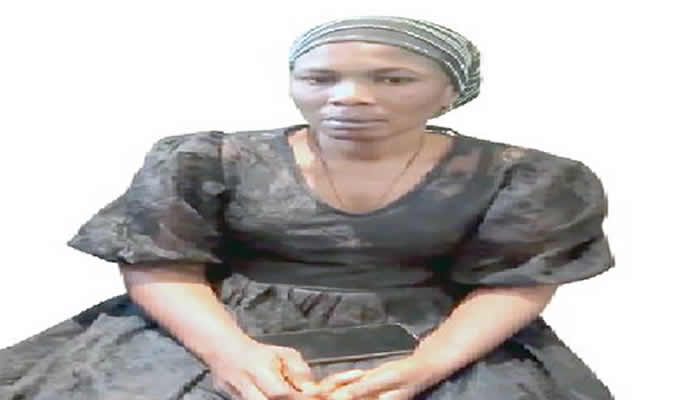
Dismissed female inspector Cries Out Over Cover up, Threat To Life By Police Authority
Former police inspector at the Edo State Police Command, Edith Uduma, tells AJIBADE OMAPE about the circumstances surrounding her dismissal from the force after exposing a colleague who allegedly raped a female suspect in police custody
You exposed an alleged rape incident involving a colleague. What made you suspicious of your colleague?
This incident occurred on October 7, 2024. That night, officers from the station went on a raid, and upon their return, Uzuobo Abraham stated that he wanted to release some of his suspects. However, the female suspect’s case was not one of the cases he (Abraham) was handling, as she (the suspect) had been detained for about four days by another inspector.
I became suspicious after I gave my cell guard the key to help Abraham check on his suspect. I waited for them to return the key, but when it took so long, I called my cell guard to inquire about it. He informed me that Abraham still had the cell key.
I decided to look for Abraham along with the cell guard. We searched for Abraham in various offices. Reaching the Admin office, we saw that the padlock was hanging on the door. That was when I found Abraham inside the office, and I recorded him in the presence of my cell guard. I was not the only person on duty, and the recording was done openly, and I did not conceal anything.
So, I don’t know why the DPO and Area Commander are saying that my action is wrong. I raised the alarm because the girl was under my custody, and somebody now took this girl to have carnal knowledge of her. I have children as well. So, I know what it feels like. Now the police want to punish me because I brought police matters to the public.
It was alleged that the female suspect was drugged. How true is this claim?
I suspected that too because I was told by the girl that Abraham bought food for her which my cell guard Moses confirmed.
What was the reaction of your superiors and colleagues when you brought their attention to the situation?
When I reported the incident, the authorities at that time were trying to cover Abraham. However, an inspector mentioned that this wasn’t the first time Abraham had done something like this. He even expressed satisfaction that Abraham had finally been caught. The situation escalated because after I reported the incident to the authorities, they seemed to be trying to protect Abraham for reasons I don’t understand.
It was alleged that you conspired with your husband to extort N1m from your colleague to cover up the incident. How will you react to this claim?
There was nothing like that. This is why I say we should make this case open. I don’t want the police to investigate this matter again; we should bring this case to light on national television, and I need the people making the allegation to explain how I collected money. I remember when making statements, nothing like N1m was mentioned there.
Our Divisional Police Officer asked us to explain what happened, and the victim was also told to share her account. After hearing everything, the DPO said she didn’t want the matter to escalate and insisted it should be dropped immediately.
However, before that, I had already given the video to three people at the station; two boys and the station officer. Remember, I was not the only officer on duty, and immediately after the incident happened, I picked up my phone and called the DPO. It happened that her number was not going through. So, I now called the station officer.
The station officer arrived much later and asked me what had happened. I explained everything to him. He mentioned that he had called the DPO, but her number was not going through, he would come back because he lived near the police station.
Around 5am, the next day, the station officer came and told me he had got the DPO’s phone number and that the DPO said I should not transfer the video to anybody yet and that I should not make any entry of the report at the station. I told the station officer that I would make an entry and that I had already given two people the video. He agreed and asked me to send the video to him and not to anyone else. I transferred the video to the station officer and when I was closing work in the morning, I made my entry.
When the DPO arrived, according to those on duty, she became upset as soon as she saw the entry I had made. She accused me of deliberately trying to cause problems, claiming I was aware she was due for retirement on November 15. I was called around 9am and told that the DPO wanted to see me. At that time, I was already at home.
Upon my arrival at the station, the DPO questioned my reason for making an entry despite her instructions, but I told her that as a police officer, I had to make an entry. She asked me to call Abraham because she heard that Abraham had offered me some money, but I refused. I told her I couldn’t collect money. People who know me are aware that my police work is different. I’m not just saying all these things because this happened. I won’t see any evil and cover it up. That is why I must get justice in this matter.
When I called Abraham, he insisted that I accept money to cover up the incident, but I refused. After much pleading, I sarcastically told him to bring N1m in cash to the station, knowing fully well that he didn’t have that kind of money. He responded by saying he was on his way.
I recorded the call, as directed by my DPO, with three other officers present. After the call, I forwarded the recording to the DPO. When Abraham came, the DPO asked what happened, and Abraham narrated it all, blaming his actions on the devil. The girl was also told to speak and she narrated how Abraham promised her N100,000.
What happened thereafter?
After that, the DPO said the matter should be closed and that she did not want anybody to hear of it again. Mind you, those two boys I sent the video to live beside our station and they are working at the area command office. My husband is also a policeman. I was on night duty when my husband brought something for me to eat as a wife, and God knows my husband did not even discuss anything.
My husband left that night immediately and did not even say a word because the matter was not his concern. The station officer informed me that the DPO wanted to see me. Upon arriving at the station, the DPO asked how the Area Commander learnt about the incident, despite instructing everyone involved to keep it quiet.
I proceeded with the DPO to see the area commander because Abraham was sent to work. Upon our arrival, the area commander asked for Sergeant Abraham, but the DPO noted that she sent him on patrol. This angered the area commander who immediately requested the presence of Abraham and the girl who was assaulted. At that time, the girl had been released to her family.
After narrating what happened, the area commander ordered that Abraham be detained and instructed his officers to take statements from me, Abraham, and the DPO for failing to report to him immediately. My DPO knelt crying, asking the area commander not to make the issue go viral. After many pleas, the area commander decided to turn a blind eye and asked us to resolve it.
On the 11th (of October), I resumed counter duty in the morning. Around 4pm, we were summoned by the area commander. Upon our arrival at the area commander’s office, we were notified that the Commissioner of Police was aware of the incident, and the area commander asked how the commissioner found out about it. That was when we were told to write a new statement, and we were notified of a trial.
After everything, officers started telling me that whatever happens in a police station stays in a police station and that there was a female inspector who had sex with a suspect, but nothing happened to her. That was how my dismissal came without committing any offence. I must get justice no matter how long it takes.
Who posted the video online and how did it go viral?
I was not the one who posted it on social media. I know the man who posted it on social media. He is a constable. I’m not going to hide anything again, if they want to trace it, they can still trace it. I eventually spoke with him, and he said he had no idea I would be dragged because of the video.
I don’t know how VeryDarkMan got the video. My family never knew anything about this issue. They saw everything on social media and whenever they asked me, I told them to forget all this social media drama.
My cell guard was immediately transferred to Abuja, FCT Command, so that I would not have any evidence or witness because it was my cell guard, Moses, and Abraham, who conspired to remove that girl from the cell.
How has your dismissal from the Nigeria Police Force impacted your personal and professional life?
I was not happy. I ran to Abuja immediately on November 6 after I heard of my dismissal. I asked, ‘How come the police dismissed me? What did I do?’ I met with the Force Public Relations Officer, who said the narrative he got was different from what I told him.
He said he was told that when the incident happened, I concealed the issue and was using it to blackmail and extort money from Abraham. I denied the allegations and was asked to make a statement. After a while, the Force PPRO told me I was still a serving member and told me to return to active duty.
While I was in Abuja, I received a call. The caller introduced himself and asked what I was doing in Abuja. He said he had intervened in my case and instructed me to return to Edo State to resume work.
Unknown to me, it was a plan to distract me, so I’d return to Edo State. I returned to work on Friday, continued on Saturday and Sunday, and was on duty again on Monday. That was when I discovered they were planning to arrest and charge me in court.
Who tried to arrest and charge you in court?
My DPO, the area commander, and two other DPOs said because I exposed a suspected rapist, they would kick me out of the police job. They wanted to arrest me and charge me. If you people want to know the truth, they should bring these people out, and let’s do it openly. I don’t want the police to investigate this matter again.
Are you saying your dismissal from the Force was not justified?
It was not justified. What did I do? Did I commit any offence? Since I started this job in January 2007, I’ve not had any criminal records, I have worked with the Force PRO in Lagos, and I don’t have any criminal record. I have served in the Police Mobile Force and have no criminal record. So, why would they accuse me and expect me to remain silent?
What is Sergeant Abraham’s current situation?
I don’t know about him. I am not sure whether he is currently detained or has been dismissed, as I did not see his name listed anywhere. I have no information about his whereabouts.
Your husband was demoted to the rank of sergeant following this incident. How do you feel about that?
He was demoted to a corporal and not even a sergeant. I’m not happy because it’s still unjustified. This is pure intimidation. That is why I want Nigerians to look into this matter. If Nigeria finds me guilty, they should do whatever they want to do, but I don’t need the police to investigate this matter again. My husband has been in detention since November 11. I don’t know why he is being detained. The police should set up a panel and invite us all again.
You threatened to kill yourself if you didn’t get justice. Why did you do so?
Yes, I said so because I needed justice over my dismissal. I need them to trace the calls I made on my phone to see if I called Abraham a second time. The only time I called him was when my DPO asked me to do so, and I made the call in her presence, I never called him to negotiate money or anything. If I forwarded the video to Abraham in the form of blackmail, they could come and check. The phone I used to make the video has been stolen at the station. Please, help me if you don’t want me to die.
You mentioned that your child was missing. What do you think led to her disappearance?
My daughter went to the police station that day to look for her father and plead with the Area Commander that he should stop coming to our house because the embarrassment was too much. A Good Samaritan gave the area commander’s number to my daughter and asked her to call and plead with him because he was not at the office. Imagine how a child of 14 years will feel. Since then, I have not seen her (daughter).
Where have you been since you learnt about your dismissal?
I’ve not been at home because I’m in hiding, and every time I call my daughters, the younger one would say her sister went out to buy something. A few days later, I had a funny feeling and called to speak with my children. That was when the younger one burst into tears and said she had not seen her sister in three days. They claimed she went to buy what they would eat only for her not to return home. We are new in the area; we only moved there in September 2024.
What do you hope to achieve by speaking out about this incident?
I hope to find Justice for my dismissal. That is all I need.
society
You Against Crime Founder Tayo Folorunsho Praises Winners of Abuja Schools Festival.

You Against Crime Founder Tayo Folorunsho Praises Winners of Abuja Schools Festival.
Abuja, Nigeria – The maiden edition of the You Against Crime – Schools Festival 2026 Grand Finale has concluded, marking a significant milestone in youth engagement and crime prevention efforts across the Federal Capital Territory (FCT).
The event, held at the University of Abuja, brought together 78 secondary schools from the six Area Councils of Abuja, with the top six schools competing in the Grand Finale.
*Winners Emerge*
Tudunwada School, Bwari took the top spot, followed closely by The Golden Crest Royal in second place, and Government Secondary School, Kuje in third.
*CULTURE, THE CURE FOR CRIME*
The festival’s theme, “Culture, The Cure for Crime,” highlighted the importance of values, identity, mentorship, and positive engagement in preventing crime and shaping responsible citizenship among young people.
*DISTINGUISHED GUEST SPEAKERS*
Auwal Musa Rafsanjani, Chairman, Amnesty International, praised the initiative, saying, “This festival is a beacon of hope for our young people, promoting values and principles that can shape a brighter future for Nigeria.”
Aisha Mohammed, Head of Enlightenment & Re-orientation, Economic and Financial Crimes Commission, emphasized the importance of mentorship, stating, “Empowering young people with the right guidance and opportunities is key to preventing crime and building a stronger nation.”
*PARTNERSHIP AND SUPPORT*
The 2026 Grand Finale Edition was proudly sponsored by Civicx Technology Ltd Int’l, reinforcing a shared commitment to youth empowerment and crime prevention through cultural reorientation and innovation.
Tayo Folorunsho, Host & Founder, You Against Crime International, addressing the media and appealed to government agencies to support initiatives like this, targeting young minds early.
You Against Crime International is a movement advocating cultural change as a long-term solution to crime. The organization remains committed to advancing youth development, civic responsibility, and nation-building across Nigeria.
society
TICP Customs Launches Paperless Regime, Warns Against False Declarations
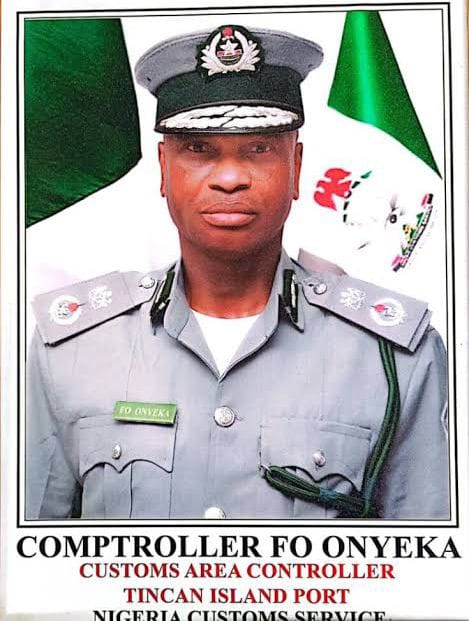
TICP Customs Launches Paperless Regime, Warns Against False Declarations
The Customs Area Controller of Tin Can Island Port Command of the Nigeria Customs Service (NCS), Comptroller Frank Onyeka, has launched a roadmap for the full implementation of a paperless regime at the command.
Onyeka disclosed this during a press briefing in Lagos, stating that the command was fully prepared for seamless digital operations ahead of the nationwide rollout scheduled for the second quarter of the year.
He described the engagement as the first in a series of consultations aimed at sensitising stakeholders on the strategies, operational framework and expectations under the new regime.
The controller commended the media for its constructive reportage since his assumption of office and sought continued collaboration to ensure the success of the initiative.
Presenting the command’s performance report, Onyeka said the Tin Can Island Command generated ₦609 billion in revenue in 2025, describing it as the highest in the history of the command.
He added that revenue collection rose from ₦116 billion recorded in January of the previous year to ₦145 billion in the corresponding period last month, representing an increase of over ₦29.9 billion.
Onyeka stated that his vision was to make the command known for trade efficiency, explaining that under the paperless regime, containers would be released without physical contact between Customs officers and clearing agents, provided declarations were accurate.
He credited the Comptroller-General of Customs, Bashir Adewale Adeniyi, for providing the leadership and strategic direction driving modernisation efforts across Customs formations nationwide.
The controller urged stakeholders to avoid false declarations and engage directly with the command to resolve concerns, emphasising that transparency and dialogue were essential to achieving efficient port operations.
He assured that consignments with clear scanning results and proper documentation would be released promptly, while those flagged by the risk management system would undergo physical examination, adding that the command would continue to collaborate with other agencies to reduce cargo dwell time and enhance port efficiency.
society
Love on Display: Katie Price and Lee Put On a Public Show of Affection

Love on Display: Katie Price and Lee Put On a Public Show of Affection
By George Omagbemi Sylvester | Published by SaharaWeeklyNG
British media personality Katie Price is once again at the center of tabloid and public attention after being photographed poolside with her new husband, Lee, in a display of affection that quickly circulated across entertainment platforms. The images, reportedly taken during a recent leisure outing at a private resort location in the United Kingdom, show the couple embracing and kissing beside a swimming pool, with Lee prominently displaying a tattoo tribute dedicated to Price.
The photographs, which surfaced in mid-February 2026 through British tabloid outlets, depict the couple appearing relaxed and affectionate. Lee, whose full name has been reported in sections of the UK press but who largely maintains a lower public profile compared to his wife, lifted his arm to reveal a visible tattoo said to be in honor of Price and a gesture widely interpreted as a public affirmation of their relationship.
What happened was straightforward but symbolically charged: a public display of affection between newlyweds, amplified by Price’s longstanding celebrity status. Where it happened (poolside at what sources describe as a private holiday setting) underscores the blending of personal life and public spectacle that has long defined Price’s media journey. During a recent February getaway placed it squarely within ongoing tabloid interest surrounding her latest marriage. Price, 47 and her new husband Lee, whose visible tribute tattoo became the focal point of the moment.
Celebrity culture scholars argue that public figures such as Price operate within a media ecosystem where visibility sustains relevance. “Modern celebrity is performative intimacy,” explains Professor Graeme Turner, a media and cultural studies scholar known for his work on celebrity culture. “Public displays of affection are not merely private acts; they are communicative gestures that reinforce brand identity and narrative continuity.” In Price’s case, her romantic relationships have long been interwoven with her public persona.
Price first rose to prominence in the late 1990s under the glamour model moniker “Jordan,” before transitioning into reality television, publishing and business ventures. Her personal life (including previous marriages and high-profile relationships) has frequently generated headlines in the British press. This latest marriage continues that pattern of intense scrutiny.
The tattoo tribute displayed by Lee is particularly significant in celebrity symbolism. Body art dedicated to a partner is often perceived as a declaration of permanence. Dr. Chris Rojek, emeritus professor of sociology and an authority on fame and public identity, has observed that “celebrity relationships are sustained as much through symbolic reinforcement as through private commitment. Visible tokens (rings, tattoos, coordinated appearances) function as public assurances.” In this case, the tattoo serves not merely as personal expression but as a visual narrative device in an already highly mediated relationship.
How the moment unfolded (casually but conspicuously) reflects the dynamics of contemporary celebrity coverage. Photographs were reportedly captured either by paparazzi stationed nearby or shared through controlled media access, a common practice in the British entertainment industry. Within hours, the images were republished by multiple outlets, accompanied by commentary on Price’s relationship history and ongoing legal and financial challenges, issues that have previously placed her under intense public scrutiny.
Despite recurring controversy throughout her career, Price remains a resilient media figure. Communications analyst Mark Borkowski has previously remarked in interviews that “Katie Price understands publicity better than most. Whether by design or instinct, she maintains a feedback loop with the press that keeps her culturally visible.” The poolside photographs appear to fit squarely within that established pattern of managed exposure and reactive media amplification.
Critically, there is no indication of misconduct, public disturbance or controversy tied directly to the poolside display itself. It was, by all verified accounts, a consensual and celebratory expression of affection between married adults. The wider attention it has generated speaks less to the act and more to the individuals involved; particularly Price’s enduring position within British popular culture.
For global audiences, the episode illustrates a broader truth about contemporary fame: private milestones often become public commodities. The marriage of Katie Price and Lee (and the symbolic tattoo that now marks it) has become another chapter in a life lived persistently under the camera’s gaze.
As celebrity culture continues to blur boundaries between intimacy and publicity, moments like this poolside embrace are no longer trivial snapshots. They are narrative events, reinforcing identity, commitment and brand continuity in equal measure.
-

 celebrity radar - gossips6 months ago
celebrity radar - gossips6 months agoWhy Babangida’s Hilltop Home Became Nigeria’s Political “Mecca”
-

 society6 months ago
society6 months agoPower is a Loan, Not a Possession: The Sacred Duty of Planting People
-

 news6 months ago
news6 months agoTHE APPOINTMENT OF WASIU AYINDE BY THE FEDERAL GOVERNMENT AS AN AMBASSADOR SOUNDS EMBARRASSING
-

 society5 months ago
society5 months agoReligion: Africa’s Oldest Weapon of Enslavement and the Forgotten Truth




